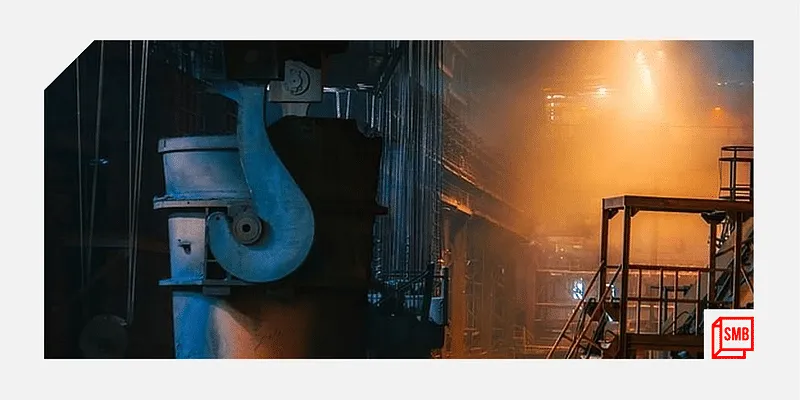Mentoring MSMEs: How SolutionBuggy is helping small businesses adopt a data-driven approach
Bengaluru-based SolutionBuggy was founded in 2016 by Arjun N. It mentors MSMEs, and provides them with consultation and strategies for business development, growth, technology adoption, and more.
The needs of micro, small, and medium enterprises (MSMEs) are vast and varied. Whether it is the sourcing of raw materials or matters such as hiring, product development, and more, MSMEs are in the need of consultations regarding various spheres of business.
While startups have ample avenues to get guidance in the form of incubators, mentors, and investors, there is a mentorship and knowledge gap within the manufacturing sector. Some small business owners who are cash-strapped and have limited resources find it difficult to reach out to consulting giants such as Deloitte, Powerwaterhouse Coopers (PwC), McKinsey & Co, Boston Consulting Group, KPMG, and others.
To bridge this gap, Arjun N started a consulting aggregation platform called in 2016. The Bengaluru-based company connects MSMEs across sectors like aerospace, defence, automotive, fast-moving consumer goods (FMCG), textiles, and others with consultants or experts in more than 50 cities in India. The platform enables small business owners to add their requirements and get connected to a consultant who can help solve the owner’s dilemma and execute the project.
In an interaction with SMBStory, Arjun and the company’s Chief Technology Officer, Guruprasad Bangle, discuss the challenges MSMEs face, their path to digital transformation, and the scope of smart manufacturing within the sector.
SMBStory [SMBS]: What is the core of SolutionBuggy?
Arjun N [AN]: We are not consultants but aggregators. Our platform has onboarded freelance consultants and individual experts, and we also onboard experts from firms like KPMG and PwC. We are a unified platform wherein we verify the requirements of the industry as well as curate a list of experts who can address these challenges. As a result, we handle around 200 projects a month and work with around 10,000 experts.
SMBS: How have you reduced the turnaround time for MSMEs to get solutions?
AN: MSMEs need solutions quickly and we have tried to reduce the turnaround time to almost 24 hours. Whenever SME owners visit our platform, they have to complete a basic registration process, and when that happens, we try to find an expert or a consultant who can get in touch with them within 24 hours.
The algorithm that we have developed in-house ensures that the owner gets in touch with the relevant expert. Depending on the kind of problem they are dealing with, sometimes it takes a day, and at other times a year as well, to find the solution.
For instance, if an FMCG requires solutions in the realm of product development, the relevant consultants are notified who eventually come on board.
Guruprasad Bangle [GB]: Apart from this, we have developed the algorithm in such a way that while looking for the expert, 30 data points are taken into account including aspects like price discovery. Now the SMB owner knows which consultant to get at what price. In my experience of interacting with SMBs, this was a challenge they faced earlier.
SMBS: COVID-19 has reiterated the importance of going digital. What scope do smart manufacturing companies have for Indian MSMEs?
AN: We are moving towards smart manufacturing but I wouldn't say that India is completely capable of taking up automation or smart manufacturing.
The younger generation of entrepreneurs are, in fact, showing a lot of interest and want to understand how to run their businesses better using mobile phones. They are asking questions like "How can I track my inventory (on my phone)?"
So there is a lot of research happening on how to deploy the resources to manufacture smart and increase efficiency and profitability. However, it will take MSMEs some time to adapt, but what we are also seeing is that a lot of OEMs (original equipment manufacturers) and tech startups have started taking the adoption of advanced technology seriously. For example, we consulted with a startup that is into the automatic painting of walls, and the team wanted solution to understand how to incorporate technology better.
GB: MSMEs have always been averse to data. So in the last few years, what we have done is inculcate awareness around using data through training programs, reiterating the importance of the collection of data.
We have also seen that a lot of times we have made IoT (internet of things) firms talk to MSMEs, but unless the latter have found the relevance of it in their day-to-day operations, the conversations have not picked up steam. So we have started with using data and things like Industrial Revolution 4.0 or smart manufacturing will take time to completely take over.

SMBS: Smart manufacturing is also about marrying the goals of efficiency and sustainability. How can MSMEs or companies at large achieve the goals of green manufacturing while also adopting a smart approach?
GB: To be globally competitive, MSMEs have to take up these challenges and processes. But MSMEs get lost and that is why we have these consultants who are experts in lean manufacturing or sustainable manufacturing.
They need to be shown how to incorporate processes into their day-to-day operations.
SMBS: Which sectors have seen huge opportunities emerge due to COVID-19?
AN: The tables have turned for toys and medical device manufacturing, along with FMCG and pharmaceuticals. India was importing almost 70 percent of its active ingredients, and when COVID-19 struck India in 2020, it compelled OEMs to rethink and explore the opportunities that were present in the domestic manufacturing realm. The government also gave a push in the form of schemes like the PLI (production linked incentive).
SMBS: Going forward, what are the new categories and product lines you are looking at?
AN: We want to work on developing teams that can work on project management of their requirements on specific requirements because connecting a consultant with an MSME is insufficient. We also want to expand our presence to some Tier-II cities including Nasik, Ahmednagar, Hubli, and more. The government is also pushing for the development of these clusters.
We are also looking at partnering with companies in the Middle East, Southeast Asia, and European countries – the regions on which Indian MSMEs are dependent for supply chains.
Edited by Kanishk Singh









